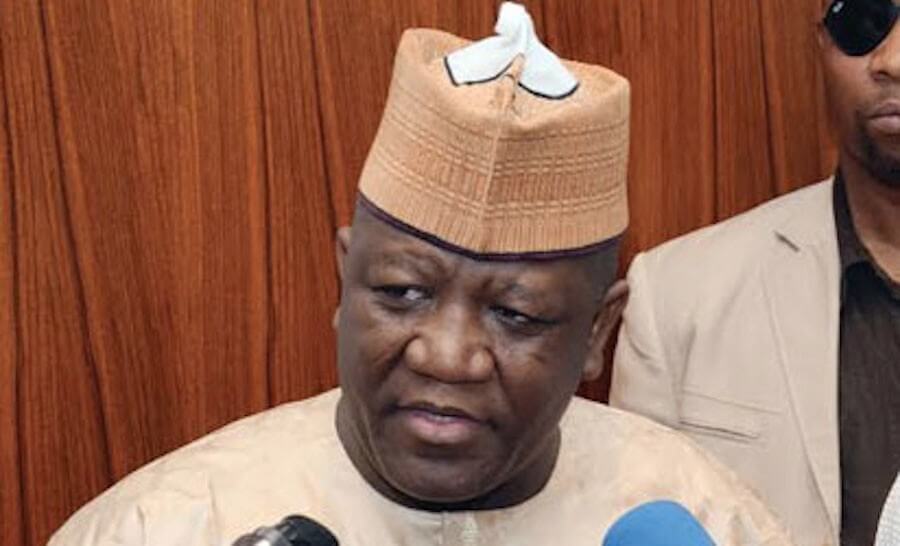
• Lawyers hail verdict,accuse FG of impunity
• Tension over ‘plot’ to reconvene Senate
The Court of Appeal has given the National Assembly the go-ahead with a bill seeking to reorder the sequence of the planned 2019 general elections.In a judgment delivered yesterday, the appellate court invalidated the verdict of the Federal High Court which, in April, stopped the National Assembly from legislating on the sequence of election.
In the unanimous verdict delivered by the President of the Court of Appeal, Justice Zainab Adamu Bulkachuwa, it was held that the case of the Accord Party (AP), which led to the judgment of the High Court, was premature at the time it was filed.The appellate court further held that the decision of the High Court in entertaining the suit by the AP amounted to a breach of the doctrine of separation of powers as enshrined in the 1999 Constitution of the Federal Republic of Nigeria.
Appeal Court consequently nullified the judgment of the lower court.Justice Bulkachuwa described the AP’s suit challenging the legality of the powers of the National Assembly on election reordering as an academic exercise, declaring that the party had no power to have instituted the action in the first instance.
Specifically, the Court of Appeal president said the AP failed to establish how its rights and obligations were adversely affected by the election reordering bill of the National Assembly higher than that of the general interest.
The judge further stated that a bill has no legal effect to expose it to being challenged in court on the basis of the violation of the constitution of the country until it has been passed by the two chambers of the National Assembly and assented to by the appropriate authority.
“The constitution does not envisage that a suit would be filed to challenge a bill at the embryonic stage of legislation because it has no binding effect until it has been assented to,” Justice Bulkachuwa said.
The Attorney General of the Federation (AGF) had written a letter to the Appeal Court, informing it that the move to reorder the election sequence had been stopped by the National Assembly, and thus the appeal overtaken by the action. But the appellate court disagreed that the matter was overtaken by event because the appeal case has life in itself.
Justice Bulkachuwa, therefore, upheld the powers of the National Assembly to legislate on election reordering, and dismissed the appeal of the AP, AGF and the Independent National Electoral Commission (INEC). The AP, through its counsel, Chief Wole Olanipekun (SAN), had dragged the National Assembly before the Federal High Court, Abuja, challenging the legality of the powers of the two chambers of the National Assembly to legislate on election reordering for INEC.
Justice Ahmed Mohammed had in his judgment delivered on April 25, prohibited the National Assembly from legislating on election sequence for INEC.The trial court held that INEC, having been established by law, has powers to decide on sequence in which elections in the country are to be conducted.The appeal against the High Court judgment, filed by Joseph Daudu (SAN), has led to the upturning of the lower court’s decision by the appellate court.
In separate reactions, some lawyers hailed the judgement.Lagos-based advocate, Chris Okeke, said: “This is a good one. Even when I have not had the privilege of reading the judgment proper, yet it is safe to say that the power of the courts is over acts of the National Assembly and not bills of the National Assembly. “What this means is that only laws passed by the National Assembly and assented to by the president in the exercise of his constitutional powers can attract the attention of the courts. Anything outside of this will mean courts exercising powers that they don’t have.”
Another Lagos-based lawyer, Dayo Ogunjebe, said the decision had vindicated his insistence that the National Assembly has the powers to reorder election sequence.“Yes I maintain that the NASS has the power but we will await the Supreme Court judgment on this. It is indeed a good news. The Federal Government is clearly a government of impunity.”
While the verdict was being delivered yesterday, the political atmosphere in the National Assembly became charged following rumour that some All Progressives Congress (APC) lawmakers were set to forcefully reconvene the Senate.It all began in the morning when some senators, including the Majority Leader, Ahmed Lawan, Hope Uzodinma (APC, Imo) and Yusuf Yusuf (APC, Taraba) were seen gathered in front of the Senate building.
The rumour of plot to forcefully reconvene the senate was peddled last week following a declaration by the presidency that the two-month recess embarked upon by the two chambers of the National Assembly had become a threat to some presidential requests pending before the lawmakers.
But Lawan and the other two senators drove to the Presidential Villa in a bus after about ten minutes of stay at the Senate.It was learnt that one of the issues for which the APC lawmakers are seeking to get the Senate to reconvene is the proposed N242 billion budget for the conduct of the 2019 elections.According to the Standing Rule, only the president of the Senate has powers to reconvene the upper chamber if it becomes necessary to sit on a date different from the date it had earlier adjourned to.
It reads: “Whenever the Senate stands adjourned either to a date fixed by the rule of the Senate or to a date determined in accordance with paragraph (1) of his Rule and it is represented by the leaders of the political parties in the Senate to the President of the Senate that the public interest requires that the Senate should meet on an earlier or a later date or time than that on which it stands adjourned, the president of the Senate may give notice accordingly, and the Senate shall meet on the date and at the time stated in the notice.”
[ad unit=2]






